Wet Leg, Nova Twins and Kojey Radical on the healing power of music
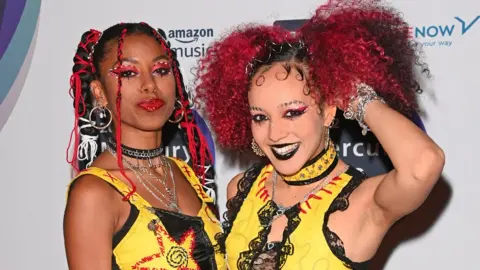 Getty Images
Getty ImagesSome of the UK's top music acts have spoken about the healing power of music, after a poll for the BBC indicated it's where many young people turn when they want to feel better.
BBC Newsbeat grabbed the Mercury-nominated acts Nova Twins, Wet Leg and Kojey Radical to ask them about it.
They told us about some of their go-to tracks when they want to chill out or cheer up.
And they also spoke about how it feels to know that their music helps others.
The online poll, conducted by Ipsos on behalf of Radio 1 and BBC Newsbeat, asked a representative sample of 2,719 British young people - 16 to 24-year-olds - about their lives.
More people who took the survey - 65% - said listening to music was their favourite thing to do in their free time.
And just over a third said they watched or listened to something when they wanted to relax.
Nova Twins
The rock duo, real names Amy Love and Georgia South, told Newsbeat writing their album Supernova had helped them get through the worst of the pandemic.
Georgia said they wanted to "give that to other people".
"A lot of our fans will come to us with particular songs and say things like, 'Oh, this one's really helped me'," says Amy.
"And it just feels amazing that the music is just shifting for people.
"It's doing more than just being on a record. It's actually affecting people in so many records that we love and listen to.
"Whether it's good, bad or sad, you want something from the music. So as long as it's your something, that's a good thing."
Amy namechecked James Blake and Melody Gardot as artists she likes to listen to when she's feeling sad.
Wet Leg
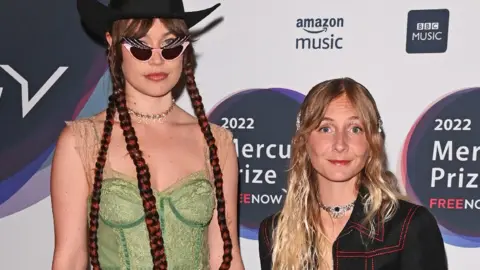 Getty Images
Getty ImagesWe asked indie rockers Rhian Teasdale and Hester Chambers whether they use music to take their mind off other things.
"It's definitely something I do," says Hester. "I have comfort albums and songs and playlists. So it's very healing, listening to music.
"At the moment I usually put on Drug Store Romeo's, The World Within Our Bedrooms. And that's just really, really soothing. I recommend."
Rhian says when she's feeling down and homesick she doesn't head for a particular artist but likes to listen to a collaborative playlist she made with her girlfriend.
"It's a good way of staying in touch," she says. "The way that I consume it is the comforting thing."
Kojey Radical
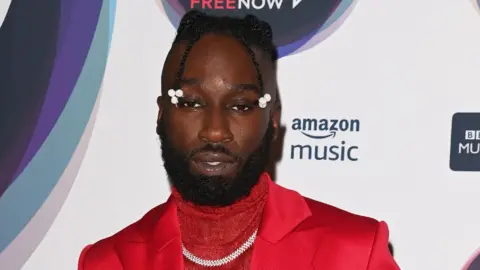 Getty Images
Getty ImagesThe rapper told us he thinks listening to music is a "personal process" and "everybody's going to connect with a song differently".
"And it's almost impossible to predict the effect a song is going to have on someone," he says.
"But I have songs that remind me of an exact moment that might calm me down, might bring me back to a happier space, and just really release some endorphins that are more positive for me.
"So if I can be that for anyone, big up them, big up me, big up us. We're winning."
Kojey says his recent artist of choice when he wants to calm down is the Japanese music producer Nujabes.
Real name Jun Sabe, he died in a car crash in 2010 but is remembered by fans as the godfather of lo-fi hip-hop.
"He's been one of my favourite producers since I was a kid," says Kojey. "And he's got a song called Reflection Eternal. That is magnificent, genuinely a work of art."
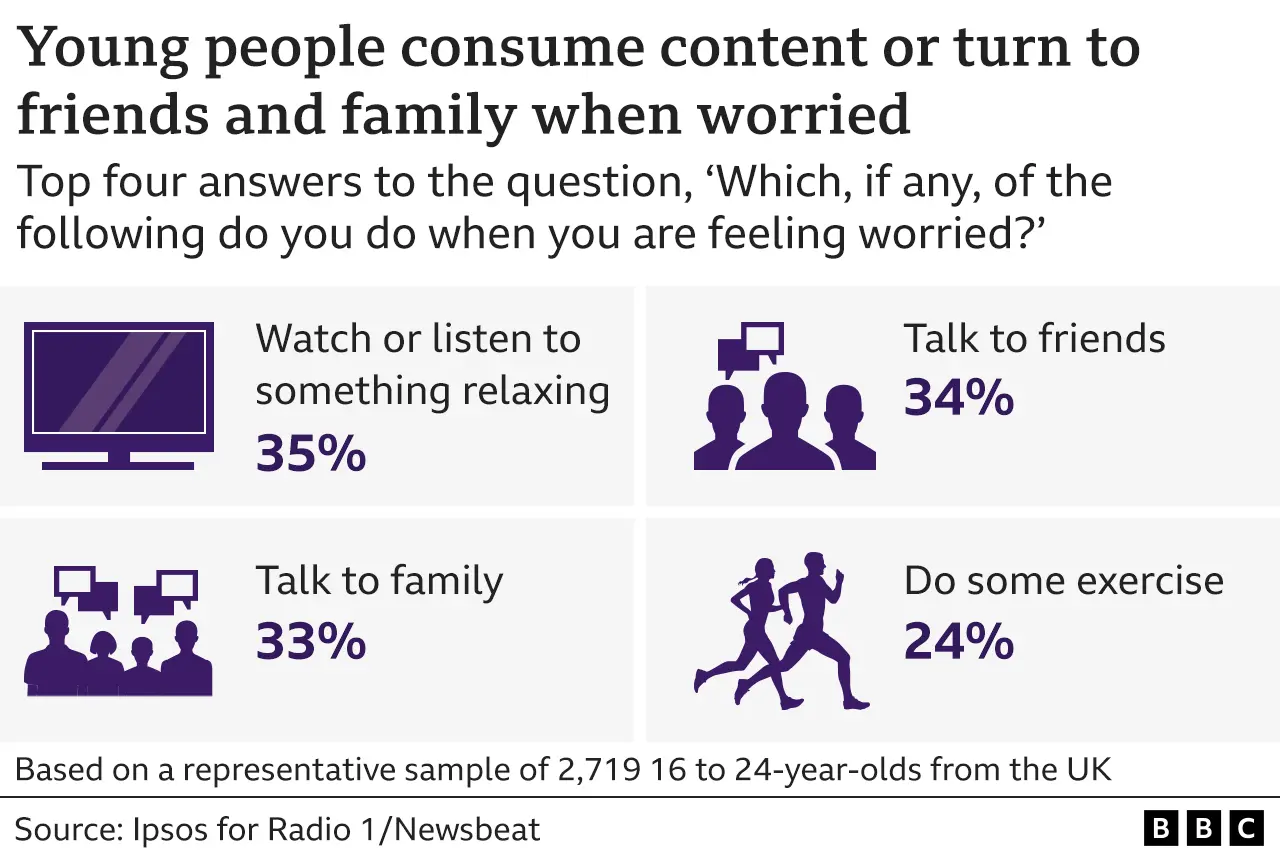

What did you tell us?
The poll for the BBC asked 16 to 24-year-olds about their lives.
Of those, 76% said they were very happy or fairly happy overall.
And 72% said they felt they could be entirely themselves around their friends.
This was compared with 63% who said they felt the same way around their family.
The people who responded to the survey were also asked to rank the three most important things to them.
- Family came out top, with 57% putting it first in their list.
It was followed by:
- Friends (35%)
- Mental health (34%)
- Money (29%)
The survey also found:
- 60% of young people felt positive about their personal life
- 57% said they were happy with their academic achievement
- 55% said they were positive about their career prospects
- 43% reported feeling positive about the future in general
- 26% said they felt positive about the future of the environment

'Music is our tool'
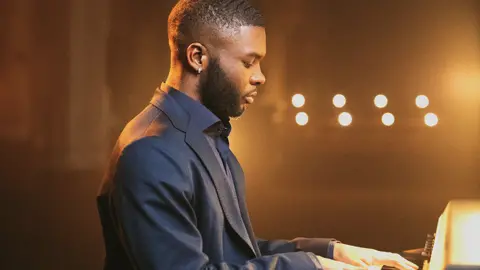 Chloe Hashemi
Chloe HashemiDaryl Lindo is one of 700 registered music therapists in the UK and, as you might expect, is a firm believer in the power of music to put us at ease.
For many of us, Daryl says, a favourite song or tune can do wonders.
"People might listen to a certain song that makes them feel calm or they might listen to a certain song when they feel angry and that's sort of where music therapy begins," he says.
But Daryl, who works at Chiltern Music Therapy, says there's growing research backing up its use in helping people with depression and anxiety.
"Any sort of percussion is great within music therapy," he says.
"In a couple of my sessions with a few clients who have been suffering from anxiety we have a drumming circle and we discuss the things that make us feel anxious - if somebody is feeling really stressed out they might crash the cymbal angrily."
Daryl also uses unconventional instruments in his sessions. He says a rain stick - a hollow tube filled with small beads that makes a rain sound when turned upside down - can help people with ADHD.
"Counsellors usually use talking as their main tool - we use music and the music can take different forms," he says.
"It could be improvisation - playing together in a group or in a one-to-one setting.
"They might take one half of the piano then I might take the other and we will jam.
"It's building a connection through music."


